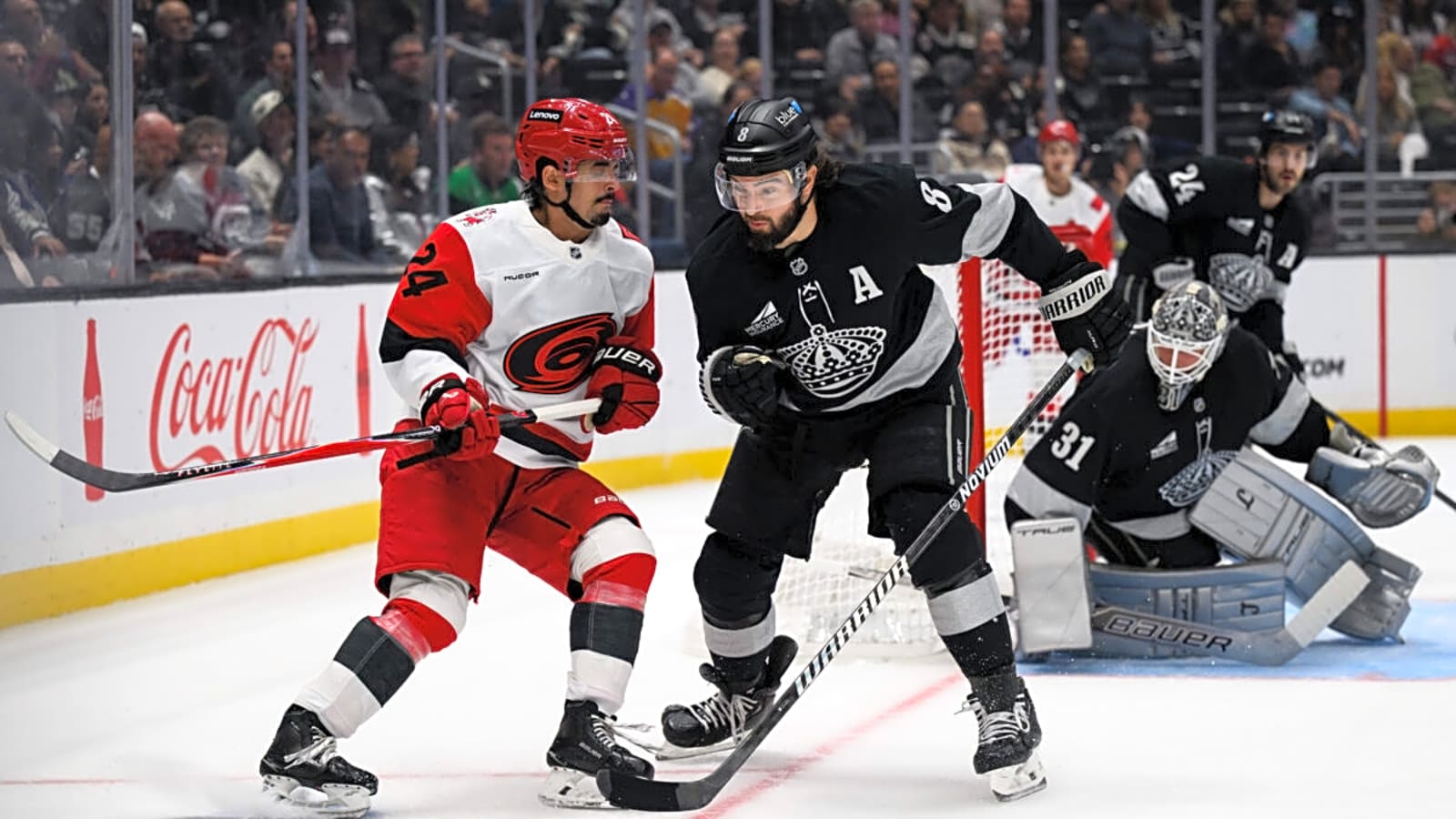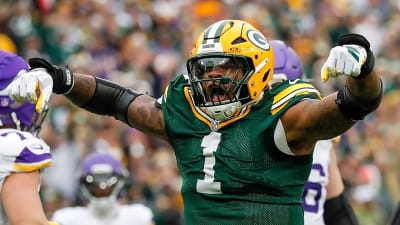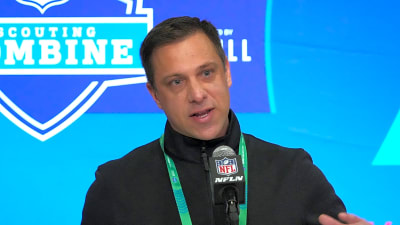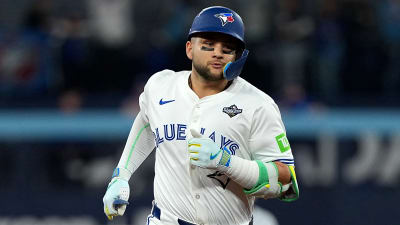
When you think about the Carolina Hurricanes, the first thing that springs to mind is their stout defensive setup. That’s been their identity ever since Rod Brind’Amour assumed the head coaching role. They’ve built their strength on a unique man-on-man style system and aggressive forecheck. Another common feature has been their elite penalty kill. Carolina’s penalty kill has been top 10 in the league every season under Brind’Amour, and top three in four of the seven seasons he has been head coach. It has been the best in the league in back-to-back seasons. So, why is the penalty kill so good if the power play is so poor?
There have been times recently where the Hurricanes look more threatening with a man in the box than with an extra man on the ice. It’s been the case for a few seasons now. Hurricanes color analyst Tripp Tracy generously called it a “work in progress” during the game against the Dallas Stars. I say “generously” because there would need to be progress. Nothing we’ve seen from the Hurricanes this season indicates that yet.
The Hurricanes’ Excellent Penalty Kill
Carolina’s high-octane penalty kill is suffocating. The relentless aggression they play with on the ice is made even more dangerous when down a man. When they clear the puck, the ability to deny the zone entirely shines, often allowing the Hurricanes to force turnovers on attempted zone entries for two minutes. You cannot get through or around them, and if you go behind them, either the goalie or the players will get back to send it back down the ice.
It’s dangerous because if a team over-commits to get into the zone, players like Seth Jarvis, Sebastian Aho, Jordan Martinook, or Jordan Staal get in behind the power play and get a look at the goaltender alone. It’s how the Hurricanes amass so many shorthanded goals and have such a strong success rate when shorthanded. It’s not that they cheat up the ice to generate offense; it’s that they take advantage of other teams cheating up the ice.
Last season, the Hurricanes killed a league-best 83.6 per cent of their penalties. That is down from an 86.4% success rate the season before. This penalty kill has led the league in three of the last four seasons, with the Boston Bruins in 2022-23 the only team to beat the Hurricanes’ killers. In Brind’Amour’s first season as head coach, the kill was the eighth-best in the league. Since then, it’s not been lower than fourth. The Hurricanes’ success on the penalty kill is a testament to their structure and coaching. So, if they have the talent to dominate with fewer players on the ice, what is holding them back on the other side of the special-teams battle?
The Hurricanes’ Dismal Power Play
Carolina’s power play is not just struggling, it’s deceased. The Hurricanes currently have the worst power play in the league, converting at 6.9%. They’ve had 45 shots on their power plays this season, with just two goals—one in the season opener from K’Andre Miller, and another from Jarvis. It’s reached full-blown panic for Carolina, given they have a man advantage that should be clicking at a far better rate than it is currently.
The Hurricanes’ power play could be forgiven for having a few wobbles. Shayne Gostisbehere is dealing with an injury, and the injury bug has messed with some of the chemistry this unit has built. If this were a case of the players needing time to get to know each other and just an odd, misplaced pass being the trouble, this wouldn’t be anywhere near the issue it has become.
Right now, the Hurricanes look more threatening when they’re down a man than up one. The second unit the Hurricanes deploy can generate a little bit, but the traditional top unit looks awful. That level of struggle is what tends to doom the Hurricanes in April and May when the playoffs come around. The special teams units cannot live with the stress and decline. An unsuccessful power play puts more pressure on the elite penalty kill to make up the difference, and they cannot.
Fixing the Power Play
Many fans have long expressed a desire for a designated power-play coach in Raleigh. It makes sense. The Hurricanes desperately need help, and these struggles are not new. A coach dedicated to improving play on the man advantage could help. Assistant coach Jeff Daniels has been responsible for the Hurricanes’ power play long before Brind’Amour took over as head coach. Would a new voice help the cause? Maybe, but it isn’t the only issue.
Carolina’s power play wants to score the perfect goal. For a team that invests in shot volume at even strength, establishing the shot on the man advantage has become increasingly rare. Instead of opting for any decent shooting opportunity, the Hurricanes are trying to walk it in. That’s incredibly rare in the NHL, even for a group with as much talent as the Hurricanes possess.
While the Hurricanes continue to adjust, mixing and matching their line combinations, there is still uncertainty about who will take the ice for any given unit. They’re changing so frequently that the units don’t have time to settle into a good form. It’s created intense pressure on the Hurricanes to figure it out. Another season wasted due to poor power-play efficiency would be a catastrophic failure. There’s plenty of time to fix it, but the Hurricanes cannot allow this problem to linger.
More must-reads:
- Canadiens receive positive Mike Matheson injury update
- Key stat shows the Canadiens have a serious team problem
- The 'Most multi-rushing-TD NFL games' quiz
Breaking News
Trending News
Customize Your Newsletter
 +
+
Get the latest news and rumors, customized to your favorite sports and teams. Emailed daily. Always free!








